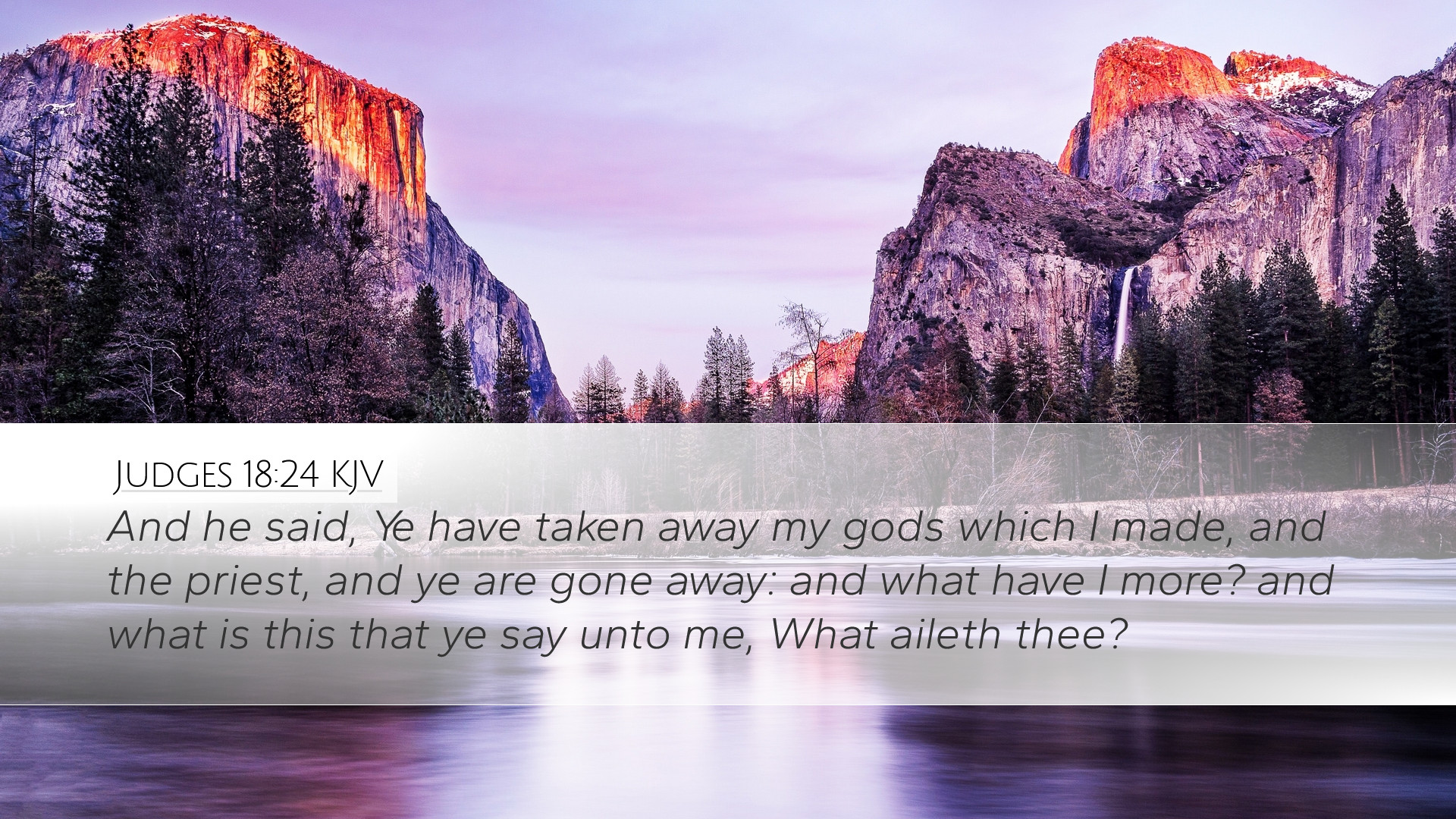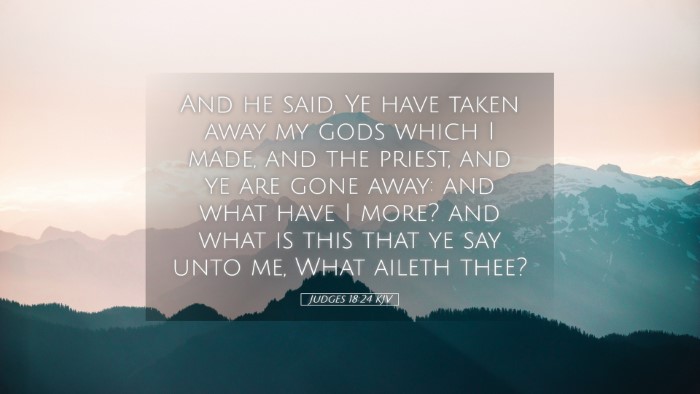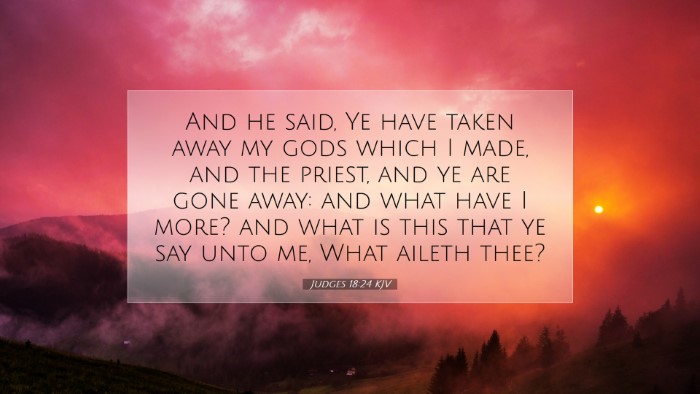Bible Commentary on Judges 18:24
Bible Verse: "And he said, 'You have taken away my gods, which I made, and the priest, and you are gone away: and what have I more? and what is this that you say unto me, What ails you?'" - Judges 18:24
Contextual Overview
The Book of Judges illustrates the cyclical nature of Israel's spiritual journey, marked by sin, oppression, repentance, and deliverance. Judges 18 recounts the story of the tribe of Dan's search for territory and their encounter with Micah, whose idolatrous practices put him in a vulnerable predicament. This verse reflects the culmination of Micah's loss and the anguish he expresses over his gods and priest being taken away.
Insights from Public Domain Commentaries
Matthew Henry's Commentary
Matthew Henry emphasizes the profound emotional and spiritual state of Micah. His lament over the loss of "my gods" illustrates not merely a physical loss but a deep-rooted identity crisis. Micah's reliance on his handcrafted idols portrays a misguided understanding of true worship and dependency on the Lord.
Micah's statement raises the question of what he has left after the Danites depart with his idols. Henry points out that this reflects an emptiness in his heart that goes beyond material possession; it indicates a deeper spiritual bankruptcy, laying bare human nature's tendency to cling to created things rather than the Creator. The query, "What ails you?" directed towards Micah by the Danites, underscores the irony in Micah's despair—what truly ails him is his misplaced trust in idols.
Albert Barnes' Notes on the Bible
Albert Barnes highlights the theological implications of Micah’s statement. Micah considered the idols he made as gods, revealing the spiritual blindness that plagued Israel during this period. Barnes notes that the idols served as a means of security for Micah, which was tragically misplaced.
The term "my gods" indicates possessiveness and pride, showcasing how personal investment in idolatry clouds one's perception of the true God. Barnes elaborates on the significance of priests during this era, noting their role in mediating between God and His people. The loss of a priest, coupled with the loss of idols, symbolizes a complete collapse of Micah's religious structure, pushing home the theme of the fragility of human-made religion.
Adam Clarke's Commentary
Adam Clarke provides additional insight into the socio-religious context that shaped Micah's identity. He remarks on the implications of cutting ties with his idols and priests. Clarke notes that Micah had created a personal religion, tailored to his whims, which is indicative of the chaotic state of Israelite worship at that time.
Clarke also comments on the definition of what it means to "take away" in this context; it is both a physical removal and a spiritual dethronement of what Micah held dear. The desperation revealed in his complaint signifies the personal turmoil that often arises when individuals rely on worldly constructs rather than the depths of divine truth. He poignantly notes that faith in idols can bring about an inevitable fallacy—when tested, what one thinks brings security ultimately lets them down.
Application and Reflection
The unfortunate reality demonstrated in Judges 18:24 poses a critical examination for believers today: what are the "gods" we cling to that may lead us away from authentic faith?
The anguish of Micah serves as a cautionary tale regarding the dangers of idolatry—not just in the physical sense but also in the spiritual and emotional arenas. Pastors, students, and scholars might reflect on how modern societies create their versions of "idols": status, wealth, relationships, and even personal ambitions that could overshadow one's relationship with God.
In contemplating what is genuinely at stake when one partakes in idol worship—whether explicitly or implicitly—it becomes clear that true fulfillment and identity should be rooted in God alone. Questions arise: Is our faith established in the unchanging truth of God, or are we at risk of creating a faith that resembles Micah’s, built on human constructs that might fail us in times of need?
Conclusion
Judges 18:24 is not merely a historical or narrative slice of Israel's disarray but a poignant reminder for contemporary believers. It calls for introspection about the nature of our devotion and the entities we allow to claim our allegiance. The responses from public domain commentaries enrich this understanding, providing layers of theological depth that resonate across the ages.
As we reflect on Micah’s sorrow, let it inspire a profound dedication to the Lord, fostering a community of faith that glorifies God alone.


